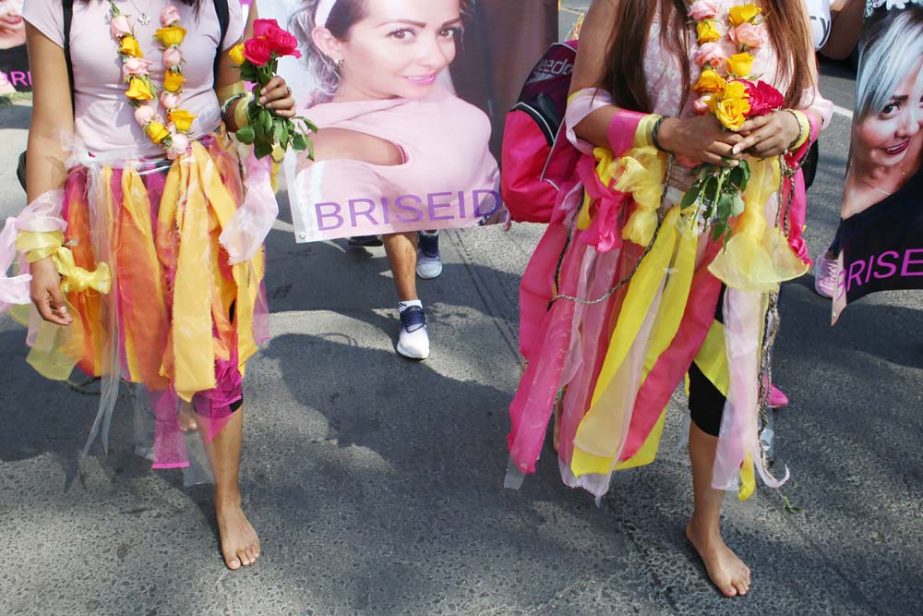
AP, Mexico :
Four women walked barefoot Saturday on hot asphalt, clothed in shreds of organza in pastel shades of pink and yellow, the favorite colors of one of the many women murdered in Mexico.
They performed a ceremony in honor of Briseida Carreño, a young woman who was killed a year ago in Ecatepec, a gritty suburb of Mexico City that has seen a large number of gender-related killings of women known as feminicides. On average, 10 women are murdered each day in Mexico, making it one of the most dangerous places in the world to be female. The threat of violence is compounded by impunity for most perpetrators: fewer than one in 10 murders are solved in Mexico.
“There’s so much violence here, we could do a performance like this every day,” said Manuel Amador, coordinator of the Network to Denounce Feminicides in the State of Mexico, where Ecatepec is located.
Frustrated by the statistics, and by the impotence of authorities, Amador has organized more than 60 processions for victims in the state of Mexico over the past eight years. The idea is to bring a face to the horrific numbers, and to call neighbors to action.
Mexico City’s mayor issued a gender alert this week for the capital, meaning that 20 of Mexico’s 31 federal entities now have declared emergencies over feminicides. That declaration was largely in response to recent, rowdy protests in the capital following allegations of rapes by city police. While protesters defaced the city’s main monument, the Angel of Independence, at one outpouring of anger, more subdued demonstrations such as knit-ins and walks led by victims’ families have become near-weekly events.
Activists are planning multiple demonstrations to mark Monday’s International Day for the Elimination of Violence against Women.
On Saturday, women strung flowers into wreaths for necklaces and shredded organza in preparation for the procession in memory of Briseida Carreño. The flowers stood for hope and healing, while the shredded fabric represented the tattered lives of victims and their families. Around the arms of the performers, Amador tied strings of blackened rope to represent the bondage of women oppressed by misogyny.
Several participants in the processions through Ecatepec have been victims of violence themselves or have lost loved-ones.
Performer Diana Ceballos’ 14-year-old cousin was raped and stabbed to death by an ex-boyfriend of the teenager’s mother. He confessed via text message to the mother immediately after the 2014 murder. Even so, it took three years to clinch a jail sentence against the perpetrator. He brought throngs of supporters to court hearings, and flashed snarky, intimidating smiles at the victim’s family.
“It’s surprising how justice can’t be named,” reflected Ceballos.
Ceballos realized the importance of speaking out for victims and became an advocate.
For nearly an hour, the procession wound past houses interspersed with taco stands, butcher shops and beauty parlors-demanding justice for felled women like Briseida.
The procession halted at the end of the street that Briseida once lived on. There, Ceballos and three other women twirled to melancholy violin music before casting off the ropes and shreds of fabric. “I’m Briseida, and I’m here to demand justice!” they shouted in unison.

